A global wave of conservative resurgence continues to shape social and legislative frameworks in 2025. Many nations actively reinforce “traditional family values,” positioning them as essential cultural and political pillars.
These efforts are frequently fueled by demographic anxiety, ideological opposition to liberal trends, and coordinated activity across international networks.
Political leaders often deploy this agenda to satisfy nationalist sentiments, resist external pressures, or delay integration with global entities.
Without further ado, let us discuss the countries that defend traditional family values in 2025.
1. Russia – State-Orchestrated Traditionalism with Regional Enforcement
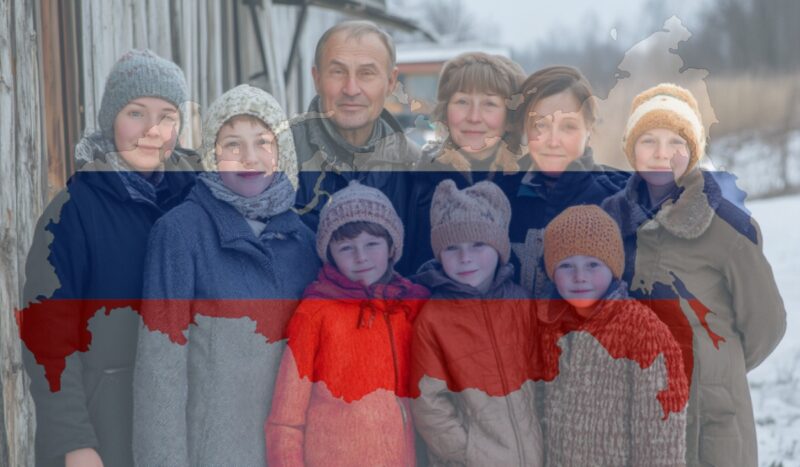
Russia’s leadership has entrenched traditional values as a defining element of national identity. Under Vladimir Putin, this ideological push has become both federal doctrine and regional practice.
- Laws prohibit the dissemination of LGBTQ+ “propaganda,” restrict gender transition procedures, and block same-sex adoption.
- Authorities have labeled the LGBTQ+ movement as “extremist,” effectively criminalizing broad categories of expression.
- Economic incentives like “maternal capital” provide financial rewards to mothers, aiming to boost birth rates among ethnic Russians.
Regional Enforcement and Autonomy:
- Local governments possess latitude in enforcing stricter policies. Several regions have banned private abortion clinics, signaling alignment with national ideological goals.
- Informal systems involving clergy and state-affiliated psychologists review social and educational programs to ensure moral compliance.
Social Contradictions
Public sentiment often diverges from official policy. Many Russians, particularly in urban areas, express moderate to liberal views on premarital sex, abortion rights, and same-sex relationships.
However, these views rarely influence policy, which remains tightly controlled by central authorities.
Traditionalism in Russia serves as a unifying banner amid internal challenges and external criticisms. It allows the state to frame dissent as foreign intrusion, strengthening its grip on cultural discourse.
2. Georgia – A Legislative Fortress for Traditionalism

Georgia has taken a dramatic turn toward codified traditionalism, embedding conservative, family values in law ahead of pivotal political events.
The governing Georgian Dream party introduced sweeping legislation in 2024 that reshaped the country’s sociopolitical fabric.
- Same-sex marriage has been explicitly banned, along with gender reassignment procedures.
- Media, education, and public spaces now operate under strict prohibitions against promoting LGBTQ+ content.
- A state-sanctioned “Purity Day” was launched to counter Pride events, rebranding national identity through a moral lens.
Electoral Strategy and Timing
The ruling party timed the legislation ahead of elections, leveraging conservative themes to consolidate support.
Traditional family rhetoric has become a centerpiece of political messaging, redirecting public discourse toward morality and family values.
International Backlash
Strong condemnation emerged from the European Union, with member states calling Georgia’s path a derailment from broader European standards.
EU accession prospects were placed under threat, prompting debate over national sovereignty versus international cooperation.
Religious Partnership
The Georgian Orthodox Church functions as an ideological backbone for the government’s agenda. Clergy have endorsed the legislative shift and organized supportive public campaigns. Faith-based narratives now dominate discussions on family, education, and morality.
Georgia has positioned itself as a legal stronghold for traditional family values in Eastern Europe. Rather than subtle alignment, policymakers have pursued outright cultural engineering, promoting conservatism through both symbolism and statute.
3. Poland – Institutionalized Conservatism via Legal Activism
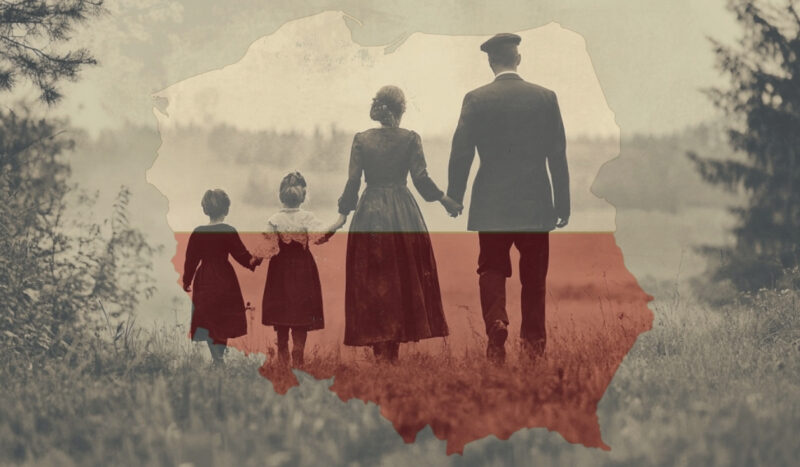
Poland has emerged as a key player in Europe’s conservative transformation, leveraging legal institutions and activist networks to reshape social policy.
Driving this momentum is Ordo Iuris, a powerful legal think tank aligned with state interests.
- In 2021, Poland enacted a near-total abortion ban, restricting access under nearly all circumstances.
- Government-backed initiatives have targeted sex education, promoting abstinence and omitting discussion of LGBTQ+ identities.
- LGBTQ+ rights remain curtailed through local resolutions and national policy discouraging public advocacy and support structures.
Influence Through Legal Infrastructure
Ordo Iuris has extended its influence through academic and political channels. New law faculties, aligned with ultraconservative principles, train future judges and lawyers in traditionalist ideology.
These institutions serve as incubators for policy agendas later advanced at the parliamentary level.
EU-Level Operations
Legal lobbying has expanded beyond Poland’s borders. Advocacy efforts target EU legislation, attempting to insert family-centric language into international resolutions. Polish actors participate in transnational conferences aimed at exporting this model to other countries facing cultural liberalization.
Political Convergence
The ruling Law and Justice (PiS) party, along with far-right allies, fully embraces this approach. Traditional family rhetoric dominates political discourse, particularly during election seasons.
The narrative centers on national heritage, demographic continuity, and rejection of Western liberalism.
Conservatism in Poland is not merely a talking point; it is a systemized strategy, embedded into legal institutions and empowered by state-aligned actors intent on reshaping both domestic and European norms.
4. Hungary – National Identity Framed Around Child Protection
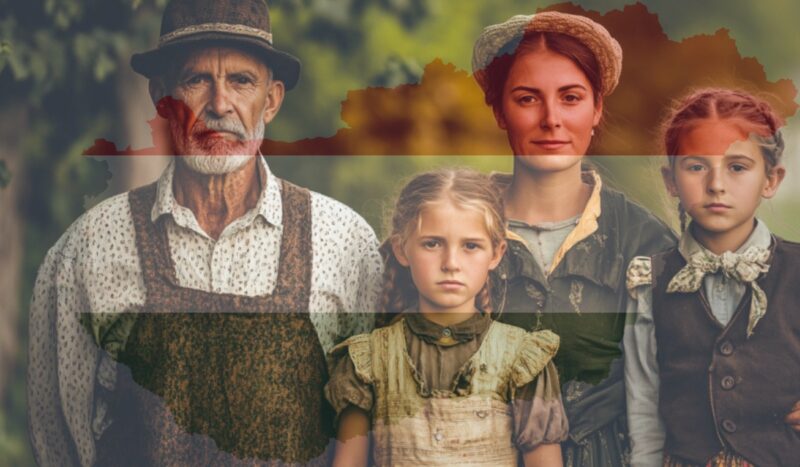
Hungary has integrated its traditionalist agenda into the fabric of national identity by framing social conservatism as a mission to protect children and preserve cultural continuity.
Under Viktor Orbán’s leadership, legislation and rhetoric converge to cast liberal ideologies as external threats.
- In 2021, Hungary passed a law banning the portrayal or discussion of LGBTQ+ topics in content accessible to minors, including:
- Educational materials
- Television
- Advertising
- The law sparked widespread domestic protests but remained firmly in place, bolstered by continued government support and media alignment.
Strategic Partnerships
Hungary has worked closely with American conservative groups, most notably the Heritage Foundation.
These relationships offer ideological validation and logistical coordination, reinforcing Hungary’s status as a model for transatlantic conservatism.
Cultural Framing by Leadership
Viktor Orbán publicly asserts that Hungary defends “Christian Europe,” characterizing progressive ideologies as existential threats.
Statements from his administration regularly invoke terms like “gender madness” and “Western decay,” mobilizing support among rural and religious populations.
EU Pushback:
- The European Union responded by initiating legal proceedings and freezing funds, accusing Hungary of violating democratic principles and human rights norms.
- Despite financial pressure, the Hungarian government uses the conflict to galvanize national sentiment, painting Brussels as an overreaching bureaucratic force.[/su_note]
Hungary’s approach blends legislative action, political narrative, and international alignment to institutionalize conservative values.
Policies are positioned as defensive measures rather than aggression, enabling a sustained campaign with domestic legitimacy and global reach.
5. Italy – Populist Conservatism and Gender Politics

Italy, under the leadership of Giorgia Meloni, has become a vocal advocate for socially conservative principles wrapped in nationalist populism.
Meloni’s government promotes the traditional family as the moral and cultural nucleus of society, using state mechanisms to reinforce those ideals.
- Surrogacy faces strong opposition, with legislative proposals to criminalize its use even abroad.
- Administrative hurdles target same-sex couples, especially in registering parental rights for children born through assisted reproductive methods.
Public communication emphasizes concerns about Italy’s declining birthrate and the importance of “natural families” in reversing demographic trends.
Rhetorical Framing and Political Messaging
Meloni often refers to Italy’s historical and cultural continuity as reasons to uphold traditional gender roles.
National identity, Catholic values, and family protection serve as themes that resonate strongly with right-leaning voters and older populations.
Institutional Obstruction Tactics
Without the need for sweeping new laws, the government strategically uses bureaucracy.
Municipal offices deny registrations, courts delay rulings, and ministries release guidelines that limit progressive policies. These indirect forms of resistance have a chilling effect on rights advocacy.
- Civil society organizations continue to protest, but their impact is blunted by conservative media narratives and institutional inertia.
- Opposition parties remain fractured, often struggling to offer a coherent counterstrategy to the government’s cultural positioning.
Italy’s conservative movement relies less on spectacle and more on policy fine-tuning.
Legal grey zones, administrative blocks, and calculated messaging allow for significant social regression without overt confrontation.
6. Slovakia – Rising Far-Right Echoing Regional Trends
Slovakia has witnessed a rapid rise in right-wing conservatism, driven by electoral opportunism and regional influence.
Far-right and nationalist parties have turned traditional family values into a central campaign issue, focusing public discourse on gender identity, sexuality, and national purity.
- Conservative factions have proposed laws targeting transgender rights and public LGBTQ+ expression.
- Efforts include limiting gender recognition on legal documents and imposing content restrictions in schools and public broadcasting.
Though some bills stall, the public discussion surrounding them reinforces the cultural war narrative embraced by political actors.
- During campaign cycles, politicians amplify fears around “gender ideology” and frame LGBTQ+ rights as threats to children and national identity.
- Anti-LGBTQ+ rhetoric becomes a rallying point for far-right coalitions, mobilizing older, rural voters and those disillusioned with EU integration.
Social and Cultural Divide
Public opinion remains split. Urban areas show signs of liberalization, while rural regions continue to support socially conservative values.
This divide fuels polarization, with public debates increasingly hostile and shaped by moral absolutism.
Regional Alignment and Influence
Slovakia’s current trajectory echoes developments in Hungary and Poland.
Similar language, party strategies, and policy initiatives suggest regional coordination, whether through formal alliances or ideological convergence.
Far-right leaders cite Hungarian and Polish examples to justify domestic reforms and reject EU criticism.
7. United States – Project 2025
In 2025, the United States plays a dual role in the global traditional values movement, as both a battleground and an exporter of ideology.
Conservative organizations, particularly the Heritage Foundation, have launched ambitious agendas with global ramifications.
At the core of this strategy is “Project 2025,” a blueprint that outlines comprehensive policy reversals aimed at reshaping American society along traditionalist lines.
- Project 2025 promotes state-level legislation targeting LGBTQ+ rights, abortion access, and school curricula.
- Education policy emphasizes parental control, traditional gender roles, and opposition to “critical theory” in history and social science instruction.
Several GOP-led states have adopted legislative packages inspired directly by the framework, codifying restrictions on gender-affirming care and reproductive health.
Global Coordination and Strategy
Project 2025 functions as a model for allied groups abroad. Workshops, white papers, and delegation visits foster collaboration with European actors such as Ordo Iuris.
Meetings between American and European think tanks serve to align language, messaging, and legal tactics across borders.
- Proponents cast the project as a cultural rescue mission, portraying progressive values as threats to national sovereignty and moral clarity.
- Messaging draws on religious heritage, parental rights, and constitutional purity, appealing to conservative voters across class lines.
Impact and Resistance
Civil liberties organizations warn of democratic backsliding, citing growing state control over personal identity and bodily autonomy.
Legal challenges mount, but conservative jurisdictions remain steadfast, seeing the backlash as validation of their cause.
America’s role extends beyond domestic battles. Conservative policymakers use institutional knowledge and financial power to influence cultural and legislative battles on a global scale, casting the country not just as a participant but as an architect.
8. Brazil – Catholic Traditionalism with Global Reach
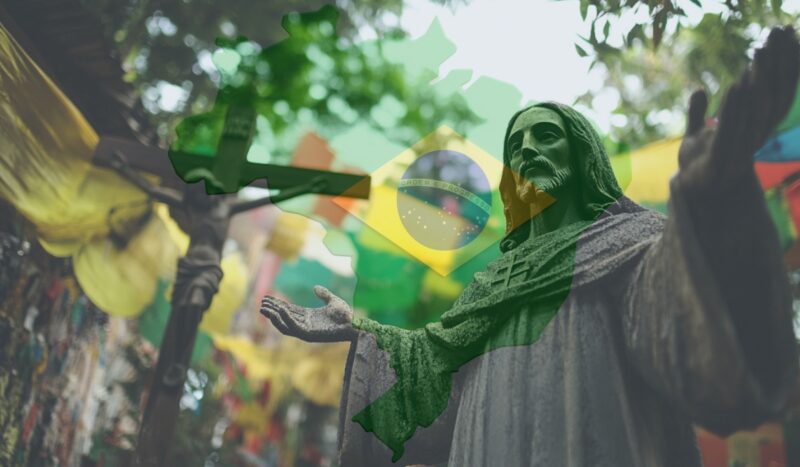
Brazil has long harbored deep conservative undercurrents rooted in Catholicism, but in 2025, those forces have taken a prominent transnational role. At the same time, it must be said that the country is experiencing a growth of the evangelical population.
Leading the charge is the group Tradition, Family, Property (TFP), a Catholic ultraconservative movement that operates not only domestically but across continents.
- Originating in Brazil, TFP now sponsors training programs, publishes ideological material, and collaborates with like-minded groups in Europe and North America.
- Campaigns focus on gender ideology, LGBTQ+ rights, abortion, and threats to the traditional nuclear family.
TFP rhetoric frames its mission as spiritual warfare, invoking divine order as justification for aggressive political activism.
- Conservative lawmakers align themselves with TFP goals, promoting legal measures that defend what they define as Christian civilization.
- Religious messaging dominates political platforms, emphasizing moral restoration and traditional gender roles.
Cultural Themes and Strategy
Public discourse centers on defending Brazilian youth against “Marxist gender theory,” which is depicted as a foreign plot to corrupt society.
Political campaigns highlight the role of the family unit as the foundation of national strength, appealing to religious communities and rural populations.
International Collaborations
TFP operates seamlessly with European counterparts such as Ordo Iuris, hosting strategy sessions and co-producing materials on how to challenge liberal legal frameworks.
Brazil’s role in these alliances is not just ideological; it is logistical, providing structure and resources.
Brazilian traditionalism in 2025 functions as a global project. Through TFP and its vast network, Brazilian conservatism exports not only values but a blueprint for political mobilization rooted in Catholic moral teaching.
9. Serbia – Balancing Integration and Conservatism
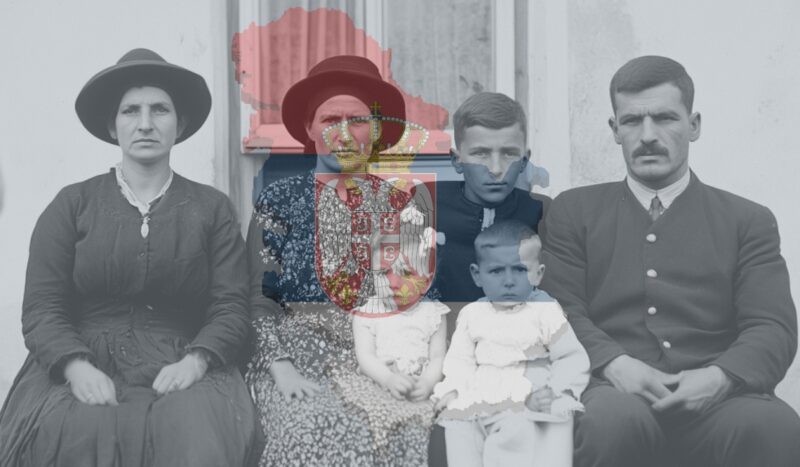
Serbia in 2025 presents a case of political dualism, courting the European Union for economic and diplomatic benefits while simultaneously nurturing a deeply conservative cultural identity.
Traditional family values serve as a tool for internal stability and nationalist consolidation.
- Officials adopt socially conservative rhetoric to maintain support among nationalist factions and rural populations.
- While formally supporting EU integration, actions on the ground often contradict stated commitments to liberal democratic norms.
Flashpoints and Symbolic Opposition
Attempts to block Pride events have become annual spectacles, with city officials citing public safety while signaling ideological rejection.
Verbal assaults on LGBTQ+ activists by political figures are framed as a defense of Serbian morality, eliciting both domestic approval and international condemnation.
Cultural Drivers Behind Policy
The Serbian Orthodox Church holds significant sway over political and social life, regularly guiding public discourse and education.
Traditional gender roles are promoted in state-aligned media and public institutions, casting nonconformity as Western infiltration.
Serbia’s conservative trajectory is shaped by internal cultural roots and geopolitical juggling. Policymakers use traditional family narratives to consolidate power, placate religious authorities, and maintain a distinct national identity while navigating EU expectations.
10. Indonesia – Faith-Based Morality in Lawmaking
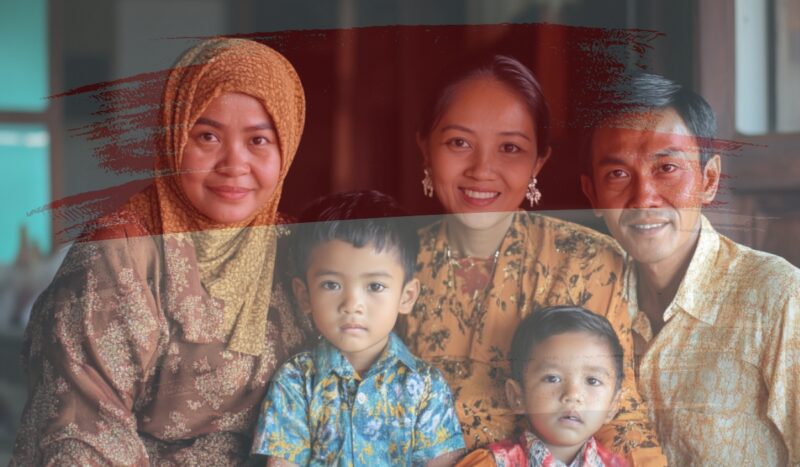
Indonesia in 2025 enforces traditional family values through legislation rooted in religious doctrine.
As the world’s largest Muslim-majority country, national identity is tightly bound to Islamic moral teachings, which increasingly shape the legal system.
Legal Developments Anchored in Morality
Extramarital sex and cohabitation outside of marriage are now criminal offenses under the revised penal code.
Morality laws govern social expression, targeting clothing, public behavior, and expressions of gender and sexuality that fall outside religious norms.
- Islamic clerics hold powerful advisory roles in government, influencing both local and national legislation.
- Political parties compete to appear as guardians of faith, using family protection as a symbol of loyalty to cultural heritage and divine law.
Demographic Framing of Traditionalism:
- Officials justify restrictions by referencing concerns about youth moral decay, claiming that the preservation of traditional families ensures generational stability.
- Campaigns in schools and mosques promote abstinence, modesty, and obedience as national virtues.
Regional Variance with National Coherence
While urban areas like Jakarta express some resistance, conservative strongholds in Java and Sumatra push for even stricter enforcement.
Local officials create bylaws aligned with Sharia principles, reinforcing federal law with community-based sanctions.
Moral law functions not only as a cultural affirmation but as a legal architecture, upheld by faith-driven policy and justified through generational rhetoric.
The Bottom Line
In 2025, traditional family values have become more than a cultural talking point, they are entrenched in law, political platforms, and national identity strategies across multiple continents.
Governments use them to assert sovereignty, galvanize electoral bases, and resist liberal international norms. Religious institutions play a defining role, offering ideological cover and moral authority to decline the birth control role.
Nationalist movements find common cause in defending a vision of society centered around heterosexual, procreative, and patriarchal family structures.
These developments rarely emerge in isolation. Instead, transnational alliances—legal, ideological, and financial—enable coordination across borders.

